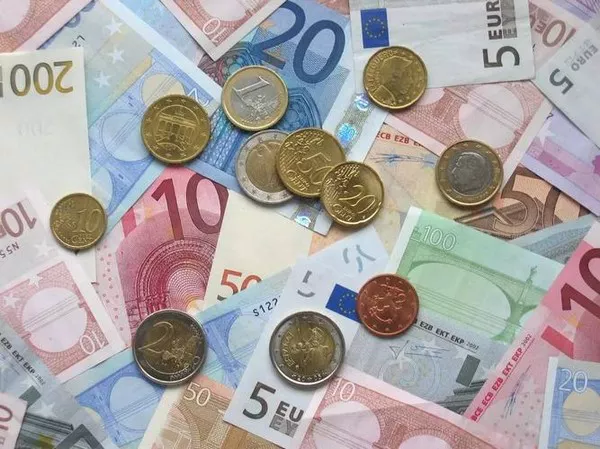The European Central Bank (ECB) plays a pivotal role in the management and control of the euro, the currency shared by 19 of the 27 European Union (EU) member states. Established in 1998, the ECB is responsible for maintaining price stability, safeguarding the purchasing power of the euro, and overseeing monetary policy within the Eurozone. In this article, we will explore the various mechanisms and tools the ECB employs to control the euro’s value and ensure the stability of the Eurozone’s economy.
The Euro: A Shared Currency
The euro, abbreviated as EUR and symbolized by €, is one of the world’s major reserve currencies. It serves as the official currency for 19 of the 27 EU member states, collectively known as the Eurozone. These countries have chosen to adopt the euro as their common currency to facilitate trade, economic integration, and financial stability. However, the power to control and manage the euro rests primarily with the ECB.
1. Monetary Policy
At the core of the ECB’s control over the euro is its monetary policy. The ECB’s primary objective is to maintain price stability within the Eurozone. This is achieved through a target known as the inflation rate. The ECB aims to keep inflation below, but close to, 2% over the medium term. To implement this policy, the ECB utilizes a range of tools and strategies:
Interest Rates
One of the most significant tools in the ECB’s arsenal is its ability to set interest rates. The ECB’s main policy interest rate, known as the “refinancing rate,” influences the cost of borrowing for banks in the Eurozone. By raising or lowering this rate, the ECB can encourage or discourage lending and borrowing, thereby influencing the money supply and overall economic activity.
Open Market Operations
The ECB conducts open market operations, such as buying and selling government securities, to influence the money supply and interest rates. For example, it may purchase government bonds to inject money into the economy and lower interest rates, or sell them to reduce the money supply and raise rates.
Forward Guidance
The ECB also employs forward guidance to communicate its intentions regarding future monetary policy. By providing clear guidance on its future actions, the ECB can influence market expectations and interest rate movements, helping to steer the Eurozone’s economy in the desired direction.
2. Bank Supervision and Regulation
In addition to its role in monetary policy, the ECB also supervises and regulates the Eurozone’s banking system. This involves ensuring the stability and soundness of banks operating within the Eurozone. The ECB, in collaboration with national competent authorities, conducts regular assessments of banks’ financial health and risk management practices. It can impose capital requirements, liquidity rules, and other regulations to maintain a stable banking sector, which is crucial for the overall stability of the euro.
3. Currency Issuance
The ECB is also responsible for the issuance of euro banknotes. It coordinates the design, production, and distribution of euro banknotes across the Eurozone. This ensures the uniformity and integrity of the currency and helps prevent counterfeiting.
4. Foreign Exchange Reserves
The ECB manages foreign exchange reserves on behalf of the Eurozone member states. These reserves consist of various foreign currencies and gold. By effectively managing these reserves, the ECB can stabilize the euro’s exchange rate and protect the currency from external economic shocks.
5. Economic Surveillance and Policy Coordination
To maintain economic stability within the Eurozone, the ECB engages in economic surveillance and policy coordination. It closely monitors the economic performance of member states, including their fiscal policies, and can provide recommendations or warnings to address economic imbalances or excessive deficits.
6. Crisis Management
The ECB played a crucial role in managing the Eurozone’s financial crisis, which unfolded in the late 2000s. It implemented various unconventional measures, including the purchase of government bonds, to stabilize financial markets and prevent a collapse of the euro. These measures demonstrated the ECB’s commitment to safeguarding the currency’s integrity during challenging times.
Challenges and Controversies
While the ECB’s control over the euro is well-established, it is not without its challenges and controversies:
1. Independence
The ECB is an independent institution, and its decisions are not subject to political interference. This independence is critical for maintaining the credibility of monetary policy. However, it has also been a source of debate, as some argue that unelected officials should not have such significant control over a currency and economic policy.
2. Monetary Policy Effectiveness
The effectiveness of the ECB’s monetary policy tools has been questioned, especially during periods of economic turmoil. Critics argue that the ECB’s policies may not always achieve their intended outcomes, and that unconventional measures, such as quantitative easing, may have unintended consequences.
3. Economic Disparities
The Eurozone encompasses countries with varying levels of economic development, and the ECB’s one-size-fits-all monetary policy can be challenging for some member states. Critics argue that the ECB’s policies may exacerbate economic disparities between Eurozone countries.
Conclusion
The European Central Bank plays a pivotal role in controlling the euro and ensuring the stability of the Eurozone’s economy. Through its monetary policy, bank supervision, currency issuance, and other mechanisms, the ECB strives to maintain price stability and safeguard the value of the euro. However, its independence and policy effectiveness are subjects of ongoing debate. Despite these challenges, the ECB remains a key institution in the global financial landscape, influencing not only the Eurozone but also the broader international economy through its control of the euro.
Related Topics:
- All About Appointment of ECB Members
- What Is ECB: A Comprehensive Overview
- How Many Countries Are in the ECB: An In-depth Analysis


